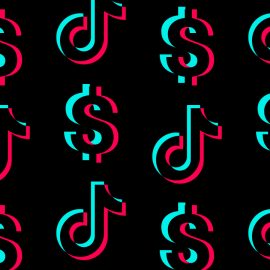A study of music’s magic – does sound have the power to heal?
I’ve always found music’s effect on the mind fascinating. From the way certain combinations of tones convey particular emotions to the capacity of sound to induce limitlessly nuanced mental states, its influence over us seems tantamount to magic. Potent yet elusive, and never fully describable with words alone.
Above all, though, the main draw of the psychology of music has been its power to heal.
Throughout history and across cultures, music has frequently been used to heal people, make them happier, and bring them together. From shamanic traditions in the East to pagan rituals in the West, music has played a central role in many healing and transformative practices.
Fast forward to the present day, and modern clinical practice is finding it to be an effective therapeutic tool, used to treat both physical disease and mental illness.
But what about the wider, less researched, ‘healthy’ population? Can music offer a noticeable benefit to our health? Never before has the medium been so free to us all – so accessible, so portable, or so diverse. Does it, or at the very least can it, provide an inexpensive and above all enjoyable elixir of wellbeing?
What do we mean when we talk about health anyway? Its definition has changed over the generations and will differ wildly depending on who you ask.
These days, the World Health Organisation pose it as “not only how poorly we feel,” but “how well we feel and which cultural resources are available to sustain and develop our sense of coherence” (quoted from Macdonald, Kreutz & Mitchell, 2012). It’s also “in our own hands” rather than those of an overarching health system, rooted in the everyday, and particularly in the arts and our cultural experiences.
Rather than being tied to the traditional ‘disease-free’ view, health is now considered to be a fusion of our physical, psychological, and social functioning. It’s no longer just an objective measure of what might be wrong with you, but a pervasive sense of wellness too.
This has paved the way for music, in this realm of health as holistic interrelation, to find a new home in healthcare. Treatments of cardiac disease, cancer, chronic pain, brain injury, and mental illness have all been given a new supporting player. Yet while the clinical evidence is stacking up, music’s healing potential in everyday life is rarely addressed.
What’s to say that the newfound prevalence of music listening can’t also have a subtle, less direct influence on our health? And then, assuming it can, how would it?
As a student some time ago, I set out to explore the possibility of psychological stress – the excess of mental or emotional pressure – as a key link in the chain. In a nutshell: we know stress is bad for our health and that music can help us cope with stress; it seems logical then that music should promote good, all-around health.
Going further, I specified a key factor to be the active use of music in dealing with stress. I wanted to know if it was the degree to which we use our favorite pieces that made the difference.
Aside from those unfortunate enough to suffer from musical anhedonia, we all listen to music and engage with it to varying degrees. Some surround themselves in a cocoon of sound every waking second, while others are content with the car radio. As a lover of Ambient and Metal (and a variety in between), I’m rarely hard-pressed to musically induce a particular emotion, and there are countless others out there who use their own unique arsenal of tastes to do the same.
A body of evidence has been growing on music’s capacity to reduce stress – something that many of us would consider being self-evident. Many of the studies observe changes in cortisol levels, a hormone that indicates increased stress levels. Others found oxytocin – a hormone linked to decreasing stress levels, as well as greater social bonding – to be increased when either singing or listening to music.
While these sedative effects might work well enough with passive listening, many of us also use music actively in a number of ways to suit a range of needs. And yet, we might not even realize we’re doing it.
One key practice we engage in, made all the more common with the invention of the portable music device, is withdrawing from the world around us. A good pair of headphones playing us our favorite tracks can quieten the chaos of the outside world, allowing us to better access our inner resources, and deploy them against any stress we might be feeling.
Michael Bull, the leading expert on the role of personal music devices, describes the process as redesigning the boundaries of the listener’s physical and cognitive space, creating a “fragile world of certainty” within our wider reality. Sociologist Tia DeNora calls these spaces ‘musical asylums’; a mental ‘back-stage’ where we can relax, reorganize, and reset.
It also goes without saying that we use music to match or change our emotions. We can put on a sad song when depressed to reassure ourselves that we’re not alone, or opt for something upbeat, to propel us forward.
And this applies not only to the present moment. A study by Anthony Ong found daily exposure to positive emotion to be of great benefit in the development of our long-term coping ability. Both learning to harness positive emotions and learn from negative ones cultivate greater overall resilience. Happiness can be a tool rather than merely an end goal.
Then there are the features of the music itself. Elements such as tempo, timbre, and rhythm can be influential factors in music’s sedative effects. Classical, Folk, and Ambient music have all been found to alleviate stress, and the often-referenced track by Ambient trio Marconi Union, ‘Weightlessness,’ was once scientifically heralded as the most relaxing piece of music ever written.
Results from addressing the sound alone aren’t always consistent, however, and more attention is now being paid to self-selected music, regardless of genre. Sergio Leardi, for example, found self-selected music to have the most significant effect on cortisol levels during surgery, compared to New Age music.
At the end of the day, our personal connections with our favorite styles, artists, and albums are undoubtedly the most restorative. It’s like sleeping in your own bed. Most of us get much better sleep at home than hopping from one hotel to another, however comfortable they might be.
So music’s capacity to reduce stress, and promote health, ultimately depends on the listener and how they harness it in their everyday lives. If we know now that ‘being healthy’ is an active process, not a static state of being, what’s to say music can’t be an ingredient in our recipe for wellbeing?
Ambientologist is a label focused on the psychological capabilities of music. Their releases can be heard on Bandcamp, while playlists aiming to promote various sides of mental development can be found on Spotify.







